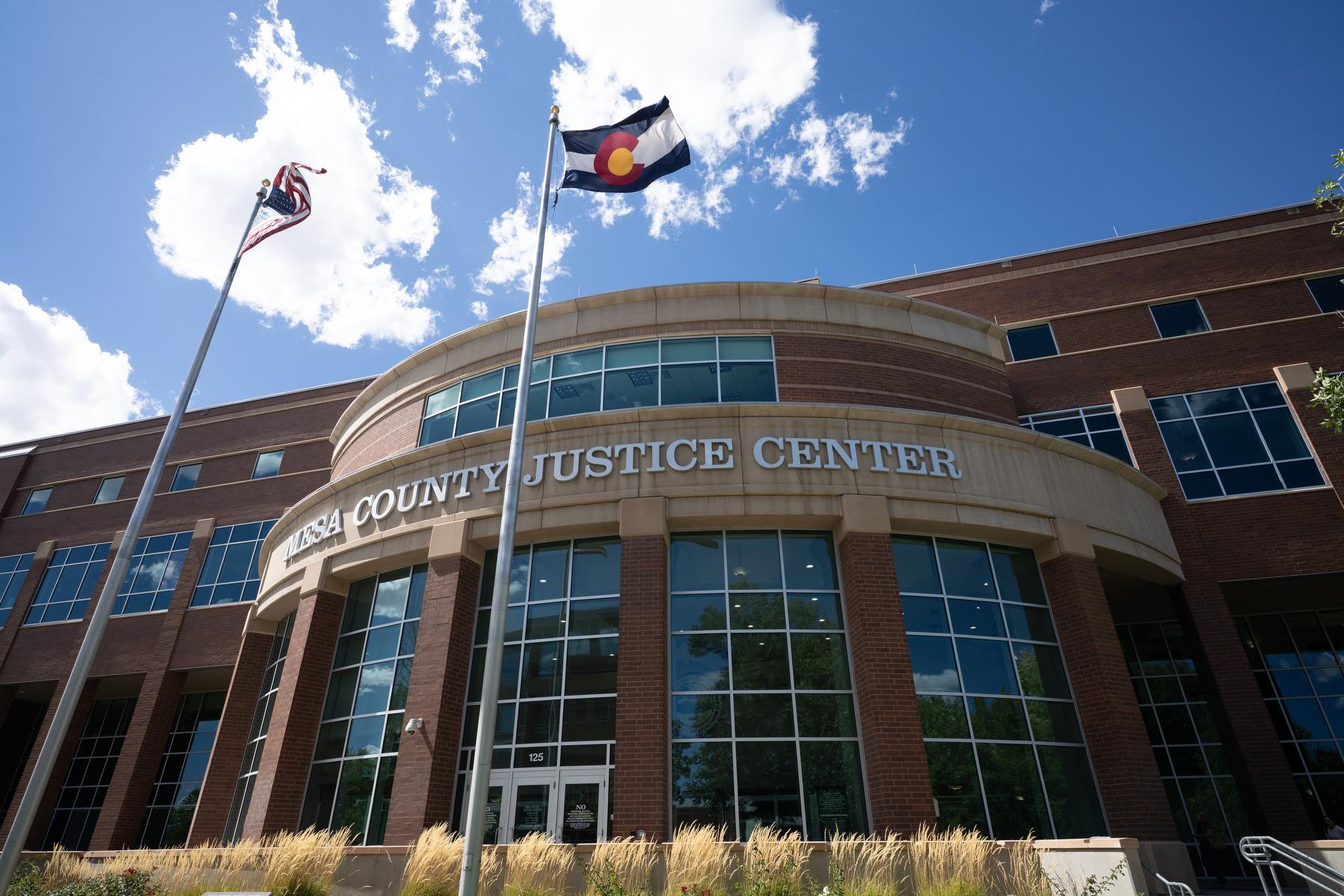
As people age, a home that once was a perfect fit can start to feel like an obstacle course. Families worry about safety and loneliness, and children may urge their parents to move. But even the idea of making a change can be unnerving — and then there’s the question of where to go and how to wade through the options for senior living.
Cameron Crawford has some advice for choosing the right senior living setup for your situation. After navigating the process with her own mom, she founded Next Steps Senior Placement in Denver to help older people and their families evaluate and select senior living communities. She also hosts a facebook page, Aging Parent Tribe.
Crawford spoke with Colorado Matters co-host Chandra Thomas Whitfield as part of our series Aging Matters.
This interview has been edited lightly for clarity and length.
What's the difference between independent living, assisted living and memory care?
‘Independent living’ is actually really fun. I say it's almost like Disney World for adults. And what it does is, it takes somebody that is doing really well and is pretty independent, but maybe they need just a few tweaks in their life to stay independent.
Maybe they have stopped driving. That's a big thing. And they can't drive anymore, so they're becoming isolated at home and so they just need transportation. Maybe it's meals and they're not cooking a lot, and that would be a benefit. Maybe they have a spouse that needs a little bit of care, but it's kind of overwhelming for them.
So if we can take some of the things off their plate, like housekeeping, transportation, meals, and add socialization, other people around them, then they can be really successful there and go back to being more independent.
‘Assisted living’ is where you're still pretty independent, but let's say that you need assistance getting your socks on and your shoes on in the morning. Let's say that you need assistance in the shower. Medication is a huge part of it. Sometimes I talk to people, they're on 20 different vitamins and meds, and that would confuse me. But we can move them to assisted living and they can manage their medication.
‘Memory care’ is where someone has dementia or they are having some kind of cognitive decline, where they're not appropriate for assisted living. There are plenty of people with dementia in assisted living and they're doing just fine. But if it becomes a safety risk, so that you're wandering, then that's no longer a safe place to be.
Or, something people don't think about: if they can't advocate for themselves and ask for help. In assisted living, they want you to push that button and ask for help. In memory care, they're going to anticipate your needs and come to you. Usually it's a smaller number of people and it's a higher caregiver ratio. And so if someone is needing more attention, memory care could be the right option.
80% of people say they want to “age in place.” When is it time to move?
Most people want to stay home, and I totally support that. And you can do that by modifying your home. You can do that by bringing in caregivers. But there's a point where financially, it doesn't make sense to stay at home. People think, especially in Colorado, “I have a basement. I'm going to have somebody come live at my house and help me.” Well, having somebody live with you costs between $15,000 to $30,000 a month. And most people I know can't afford it. So some people move because of financial reasons.
A lot of times when people move, it's a married couple and they're aging differently, and one of the spouses is healthier and they are just worn out. And they're the ones that, not only do they need someone else to help with the care, but they want friends around. They haven't been able to get out and see people and they've become isolated in their house. And so it would benefit them to move.
Why it’s better to plan ahead
First of all, I know I love my children, but I like to make my own decisions. So I would rather tell them where I want to go than to have my kids come and say, ‘oh, you're going here.’
A lot of times it might be the adult kid that calls me and connects me with their parents. But then I love to just go on tours with the parents, to go see all the places, to talk about what's important to them, to know their personality, where they might fit. We usually stop and have lunch there. That way you can try the food, because food's really important. If you're moving somewhere, you want to like the food.
I say, okay, plan A, why don't you stay home as long as this is working. But let's have a plan B in the works, so if there's a crisis, then we know what your preferred options are.
Advice for an older person who doesn't have a family member to lean on
Number one, I know that they are nervous and scared because they don't know who's taking care of them. And so, it's a priority for my company to work with those people and to help them through the process, because it's scary.
I would usually recommend working with a placement agent that's a local agent. They're the people that live here in Colorado. If you can't drive, they'll come and pick you and take you to the community. They'll tour with you. They'll sit and have lunch with you, and so they'll talk with you through the whole thing. Because it's a lot to process.
The most important questions to ask as you're looking for the right place
The first thing you want to ask is, you want to have them be transparent about what the financial obligation is, and what the contract looks like. In Denver, a lot of times we can find something for almost any price range, but you want to know what that looks like.
Some places you buy in, and so you're kind of saying, this is where I want to be for the rest of my life. Some places are month-to-month.
Is there going to be a community fee? The majority of places have a one-time community fee. In Denver, it could go anywhere from a thousand dollars to over $20,000. And so you'll want to know that upfront.
You also want to know what they can and they can't do. And it's almost more important to know what they can't do. So, if someone is a sliding scale insulin diabetic, which means every day it adjusts, there's really only four or five places in Denver that can meet that need. So why waste your time looking at a lot of other places if they're not going to be able to meet that need.
So when you talk to them, you want to be very clear about what the care needs are. And be very transparent. I feel like it's better to be transparent upfront than to surprise them later on.
Avoid the “chandelier effect”
Things right now are really pretty. The way that people build assisted living — or they've remodeled them recently, if it's an older place — they are beautiful. In fact, they look prettier than my own home. Sometimes I'll take pictures and be like, ‘oh, I should do that in my kitchen.’
But a lot of times it's easy to be distracted by how pretty someplace is. And you look at the chandelier or you see the swimming pool, but what you don't think about is the care part of it, which is really why you're moving.
Who's running the building? How long has the staff been there? What's the caregiver ratio? Who's the executive director that's in charge of the whole building, and how long have they been there?
What does this cost?
Independent living will run anywhere from $3,000 to well, actually, there's a $17,000 room. It’s beautiful, it’s got a great view, and a very nice chandelier. It's gorgeous.
Assisted living, there's going to be two different costs. There's going to be, typically, the room cost and in Denver right now, the averages are running between $3,500 and $6,000 a month. And then on top of that, there's typically a care cost.
Will Medicaid pay for this?
Oh, well, we wish.
The majority of places are all private pay. Private pay can be out of pocket. It can be if you have a long-term care policy. And, if you are a veteran, many people miss this benefit called “Aid and Attendance.” If you're the vet, it can be over $2,700 a month. And so it could be a combination - you're paying a little bit out of pocket, and then you're also getting an “Aid and Attendance” benefit.
Now, Medicaid, and in Colorado we also have PACE and InnovAge: those will pay for specific communities. They have to have a specific license. It has to be approved. And for InnovAge, it has to be in a specific zip code.
Very, very few places will accept somebody on Medicaid - I'm just going to use that as a generic term - that's already on Medicaid and just wants to move in and use their Medicaid benefits. There are some really nice places that will allow you to ‘private-pay’ for one to two years, and then you can stay there on Medicaid.
What are some tips to helping this move go well?
It really helps if the senior can embrace the idea and be all-in. Their attitude can make a huge difference. And if you go in saying, ‘Alright, I know this is uncomfortable. I know I didn't want to do this, but let's make the best of it. And I'm going to try everything and find my people here,’ they're going to have a really good transition.
I think it's really important if they have family, for the family to be involved. Knowing who works there is important. Don't just know the executive director, know who the activity director is, meet the chef, meet all the other people that are in charge of taking care of your parent.
This story is a part of Aging Matters, a series from Colorado Matters about the Centennial State's aging population. Read more stories here.









